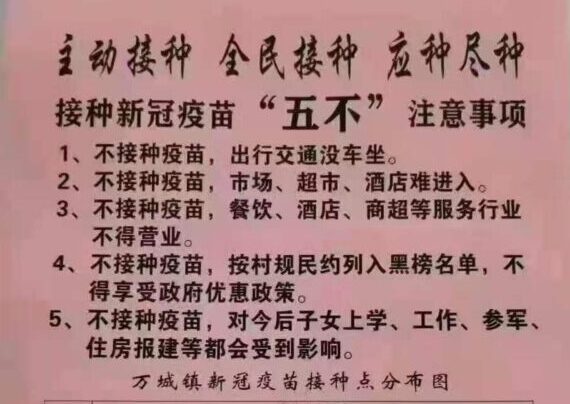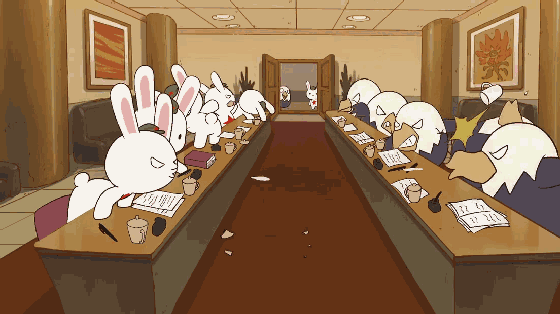Archive for Language and politics
May 15, 2021 @ 6:41 pm· Filed by Victor Mair under Language and politics, Language and sports, Semantics, Translation
A jumble of soccer talk and Confucian piety, with a splash of CCP ideology
Week in China has an interesting article about a football flap that occurred recently in China:
"Lost in translation: Cannavaro gets Confucian" (May 14, 2021; WiC 540)
The story is quite convoluted and complicated, so we need to start with the background of the key term at play: shì 士 (not tǔ 土 ["earth; soil; dust; local; native; indigenous; uncouth; colloquial"] — it is very easy to confuse the two characters). You will note that nowhere in this long article is there any attempt to translate 士 ("warrior; soldier; scholar; gentleman") into English, and that is a big part of the rub.
Read the rest of this entry »
Permalink
May 5, 2021 @ 1:10 pm· Filed by Victor Mair under Borrowing, Historical linguistics, Language and culture, Language and food, Language and politics
[This is a guest post by S. Robert Ramsey]
"Korean kimchi originally came from China."
–Or so China’s online encyclopedia Baidu Baike declared in its article on kimchi.
Koreans were outraged. What gall for Chinese to lay claim to their national dish! Adding to the furor, China’s English-language newspaper Global Times reported last year that the International Organization for Standardization (the ISO) had recognized an “international standard for the kimchi industry led by China.”
Indignant Koreans flooded the Internet: “It’s total nonsense, what a thief stealing our culture!” a South Korean netizen said. Another wrote: “I read a media story that China now says kimchi is theirs, and that they are making international standard for it. It’s absurd.”
Read the rest of this entry »
Permalink
April 6, 2021 @ 9:46 pm· Filed by Victor Mair under Language and medicine, Language and politics, Language and the law

A notice issued in Wancheng, a town in Hainan Province on March 31 warning people of consequences if they refuse to take vaccines. (Screenshot via Weibo)
Read the rest of this entry »
Permalink
March 22, 2021 @ 6:42 pm· Filed by Victor Mair under Borrowing, Language and politics, Language and the media
A little less than four years ago, I wrote a post about the subject of báizuǒ 白左 ("white left"). It was a difficult post to write, because the topic was sensitive, controversial, and recherché. The post provoked an enthusiastic discussion, with much of the emotional investment being about whether the term would stick in English a year or two later.
I filed it away far in the back of my mind, thinking that I might never have to deal with it again because, in truth, it had given me a lot of headaches, trying to make sense of its ideological and political implications in China and in the West (which are by no means the same), its relationship to SJW (Social Justice Warriors), and so forth. I was happy enough not to have to think about báizuǒ 白左 ("white left") for four years.
Read the rest of this entry »
Permalink
March 21, 2021 @ 6:14 am· Filed by Victor Mair under Language and computers, Language and politics, Language teaching and learning
Article in official CCP media source:
"Chinese lawmaker proposes removing English as core subject"
By Liu Caiyu, Global Times (3/5/21)
Coming from GT, the hyper-nationalistic tabloid, this attack on English is not unexpected, and similar anti-English proposals come up every year around the time of the national meetings of the Liǎnghuì 兩會 (Two Sessions), annual plenary meetings of the national People's Congress and the national committee of the Chinese People's Political Consultative Conference that have just concluded in Beijing (March 4-11).
Here we go again:
Is English really that important? A Chinese lawmaker at the two sessions has proposed removing English as a core subject for Chinese students receiving compulsory education, triggering heated discussion on Chinese social media.
The proposal was made by Xu Jin, a member of the Central Committee of the Jiusan Society and also a member of the Chinese People's Political Consultative Conference (CPPCC). It has also been proposed by other lawmakers in previous years.
Read the rest of this entry »
Permalink
March 20, 2021 @ 3:34 pm· Filed by Victor Mair under Language and politics, Lost in translation
China's netizens are taking the recent diplomatic contretemps in Anchorage, Alaska in an extremely lighthearted spirit:

(Source: Weibo)
Read the rest of this entry »
Permalink
March 14, 2021 @ 7:19 am· Filed by Victor Mair under Language and literature, Language and music, Language and politics, Writing systems
For more than five decades, Orville Schell has been one of our leading China expositors. Having authored or co-authored a dozen books on Chinese affairs, he now turns his hand to a fictional biography with My Old Home: A Novel of Exile (Penguin Random House, 2021). Blurb from the publisher:
A uniquely experienced observer of China gives us a sweeping historical novel that takes us on a journey from the rise of Mao Zedong in 1949 to the Tiananmen Square uprising in 1989, as a father and his son are swept away by a relentless series of devastating events.
It’s 1950, and pianist Li Tongshu is one of the few Chinese to have graduated from the San Francisco Conservatory of Music. Engaged to a Chinese-American violinist who is the daughter of a missionary father and a Shanghai-born mother, Li Tongshu is drawn not just by Mao’s grand promise to “build a new China” but also by the enthusiasm of many other Chinese artists and scientists living abroad, who take hope in Mao’s promise of a rejuvenated China. And so when the recently established Central Conservatory of Music in Beijing offers Li Tongshu a teaching position, he leaves San Francisco and returns home with his new wife.
But instead of being allowed to teach, Li Tongshu is plunged into Mao’s manic revolution, which becomes deeply distrustful of his Western education and his American wife. It’s not long before his son, Little Li, also gets caught up in the maelstrom of political and ideological upheaval that ends up not only savaging the Li family but, ultimately, destroying the essential fabric of Chinese society.
Read the rest of this entry »
Permalink
March 3, 2021 @ 5:27 pm· Filed by Mark Liberman under Language and politics, Words words words
“We are on the cusp of being able to fundamentally change the nature of this disease because of the way in which we’re able to get vaccines in people’s arms […] And the last thing, the last thing we need is Neanderthal thinking, that, ‘In the meantime, everything’s fine. Take off your mask. Forget it.’ It still matters.”
Read the rest of this entry »
Permalink
February 16, 2021 @ 9:10 am· Filed by Mark Liberman under Language and politics, Words words words
The OED's definition of the political sense of dog whistle is "A statement or expression which in addition to its ostensible meaning has a further interpretation or connotation intended to be understood only by a specific target audience", derived from the literal sense "A high-pitched whistle used in training dogs; (later) esp. one producing sounds at a frequency above the range of human hearing". The definitions at Merriam-Webster and Wiktionary are similar.
There seem to me to be a few things wrong these definitions, at least as the term dog whistle is generally used. One thing missing that the "further interpretation" is (viewed by user of the term dog whistle as) shameful. And one superfluous part of the definitions is the idea that the "further interpretation" is not understood outside the "target audience" — rather, the goal (as attributed to the dog whistler) seems to be more a matter of euphemism or deniability.
Scanning instances of dog whistle on Google News this morning, the first dozen or so of the examples seem to me to confirm my impressions.
Read the rest of this entry »
Permalink
February 10, 2021 @ 10:37 am· Filed by Victor Mair under Language and culture, Language and politics, Multilingualism
The multilingual part of this message from the President of Taiwan comes near the end of this 2:26 Twitter video:
Read the rest of this entry »
Permalink
February 7, 2021 @ 8:01 am· Filed by Mark Liberman under Language and politics
Read the rest of this entry »
Permalink
January 28, 2021 @ 8:12 am· Filed by Victor Mair under Language and politics, Translation
A select quotation from the Confucian Analects (Zǐlù 13.18):
Shè gōng yù Kǒngzǐ yuē:`Wú dǎng yǒu zhígōng zhě, qí fù rǎng yáng, ér zi zhèng zhī. 'Kǒngzǐ yuē:`Wú dǎng zhī zhí zhě yì yú shì. Fù wèi zi yǐn, zi wèi fù yǐn, zhí zài qí zhōng yǐ.'
葉公語孔子曰:「吾黨有直躬者,其父攘羊,而子證之。」孔子曰:「吾黨之直者異於是。父為子隱,子為父隱,直在其中矣。」
The Duke of She informed Confucius, saying, "Among us here there are those who may be styled upright in their conduct. If their father have stolen a sheep, they will bear witness to the fact." Confucius said, "Among us, in our part of the country, those who are upright are different from this. The father conceals the misconduct of the son, and the son conceals the misconduct of the father. Uprightness is to be found in this." (trans. James Legge)
Read the rest of this entry »
Permalink
January 25, 2021 @ 7:36 pm· Filed by Victor Mair under Classification, Dialects, Language and politics, Language and society, Topolects
This is cause for rejoicing:
"Meet the Malaysian on a mission to make Hokkien great again, amid Mandarin’s rising popularity in Southeast Asia"
Linguist Sim Tze Wei has been accused of trying to divide the Chinese people, as there are those who see the use of other Chinese languages ‘as a sign of disunity and weakness’
But he points out that Chinese immigrants to Asia have for generations been speaking their own languages, which are being edged out as more turn to learning Mandarin
Randy Mulyanto, SCMP, 1/24/21
When Sim Tze Wei began working to raise awareness of the Hokkien language, he never expected he would be accused of trying to divide the Chinese people.
“Han Chinese nationalists everywhere are keen to equate Mandarin to [real] Chinese,” said Sim, adding that there are those who find ethnic Chinese people speaking in Chinese languages other than Mandarin “as a sign of disunity and weakness”.
The Malaysian-Chinese linguist, who is in his mid-30s, is president of the Hokkien Language Association of Penang. Through the association, Sim is campaigning for the wider use of Hokkien, and advocating that it be reinstated as a language of instruction in independent and Chinese primary schools in the northern Malaysian state, as he fears Hokkien will “continue to be eroded by Mandarin and English”.
Read the rest of this entry »
Permalink

